-
41.Professor David Oakley

-
Professor David Oakley is a clinical psychologist who has suggested hypnosis as a therapeutic technique in psychology, medicine and dentistry. He is also the founder and co-director of the Hypnosis Unit UK, and the former editor of the journal Contemporary Hypnosis. Oakley has achieved awards for his books and his research papers into psychology of human delusions.
-
42.David Sharp

-
The brain is the most complex thing known to man; it contains more neural connections than there are stars in the observable universe. Professor David Sharp of Imperial College London is making it his life’s mission to try and understand it. Specifically, he is leading unique research into how the brain is affected after trauma in the hopes of developing novel treatments for patients.
-
43.Dr Derek Ratcliffe
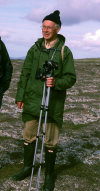
-
Derek Ratcliffe was one of the most significant nature conservationists in Britain in the twentieth century and he created the framework for modern conservation. He was the first person to discover the link between the use of pesticides and the decline in numbers of birds of prey, particularly the Peregrine Falcon.
-
44.Dian Fossey
-
On New Year’s Eve 1977, in the depths of Volcanoes National Park, Rwanda, a silverback gorilla was killed by six armed poachers, accompanied by dogs, while defending his group, who manage to escape during the attack. The silverback’s name was Digit and his tragic death changed the face of primate conservation forever. Dian Fossey, a pioneering primatologist, had formed a close personal bond with Digit the moment she met him. She described him as a “playful little ball of disorganized black fluff”. When his disfigured body was discovered on New Year’s Day, 1978, with the head and hands chopped off, Fossey’s initial reaction was one of deep grief, which she soon channelled into anti-poaching campaigning.
-
45.Dorothy Crowfoot Hodgkin
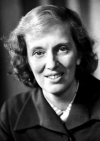
-
Hear the word X-ray and you probably think of hospitals and human skeletons, but Dorothy Crowfoot Hodgkin used X-rays to reveal the molecular ‘skeletons’ of penicillin, vitamin B12 and insulin. Her discoveries have allowed us to better understand a range of illnesses, including diabetes, and in some cases to make synthetic versions of proteins as a treatment. X-ray crystallography continues to be an important tool in understanding disease and designing new medicines.
-
46.Baron Edgar Douglas Adrian
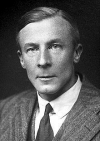
-
1st Baron Edgar Douglas Adrian was an English electro-physiologist who shared the 1932 Nobel prize in physiology with Sir Charles Sherrington for his work on the functions of neurons. He was also responsible for the development of electroencephalography (EEG) to measure brain activity, an invaluable tool that has helped numerous doctors diagnose brain tumours and epilepsy.
-
47.Edith Bulbring
-
Edith Bulbring was a pioneer in smooth muscle research (the muscles found in the walls of hollow organs such as the intestines and stomach) and she was one of the first women to be accepted as a Fellow of the Royal Society.
-
48.Eduard Suess
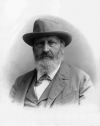
-
London-born Eduard Suess was an Austrian geologist and palaeobiologist. He was mainly interested in the geological structure of Earth and the concept of plate tectonics, but his interest in rock formations stemmed from his study of fossils and classification of extinct sea animals.
-
49.Sir Edward Bagnall Poulton
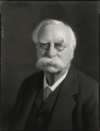
-
Sir Edward Bagnall Poulton was a naturalist and the first to recognise frequency-dependent natural selection. The theory of evolution by natural selection had just been introduced to the world by Charles Darwin, but few allowed it to flourish. In fact, there was a large amount of opposition to the theory. Sir Poulton however was a strong advocate of it, even while other prominent scientists doubted it strongly and openly.
-
50.Edward Forbes
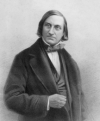
-
Edward Forbes devoted much of his life to the study of molluscs and starfish and he was a pioneer in biogeography.
-
51.Edward Jenner
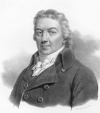
-
Edward Jenner was a West Country lad through and through. Born in 1749 in Berkeley, Gloucestershire, he was schooled in Wotton-under-Edge and Cirencester, before learning his medical trade as an apprentice in Chipping Sodbury. He left for London (to complete his qualifications) in his early twenties, but returned to work in his native Gloucestershire two years later.
-
52.Edward Joseph Lowe
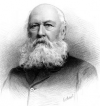
-
Edward Lowe was a botanist, meteorologist and expert on conchology (the study of shells). His scientific observations helped to shape our understanding of the earth’s atmosphere and he was a founding member of the Royal Meteorological Society.
-
53.Edward Osborne Wilson
-
When E. O. Wilson was finishing Sociobiology: The New Synthesis in 1975 it was unlikely that he could have predicted the reception that this particular book was going to have.
-
54.Reverend Edward Stone
-
The Reverend Edward Stone was a Church of England vicar who discovered salicylic acid, the active ingredient in aspirin.
-
55.Edwin Lankester
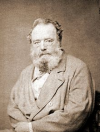
-
Edwin Lankester was a public health reformer and naturalist who contributed to the control of cholera in London. He was the first public analyst in England.
-
56.Elise Andrew

-
Elise Andrew is a biologist and author of the popular science blog IFLScience (IFLS). She is a great advocate for making science acceptable to everyone and is currently developing a television series based on IFLS with the Discovery Channel.
-
57.Elizabeth Blackburn
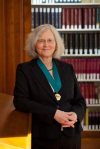
-
In 2009 Elizabeth H. Blackburn was awarded the Nobel Prize in Physiology or Medicine along with her colleagues Carol W Greider and Jack W Szostak. They discovered that chromosomes are protected by telomeres, and the enzyme telomerase is responsible for their maintenance. They created a whole new field of research that impacted our ideas about cancer cells, stem cells, and ageing.
-
58.Elizabeth Blackwell
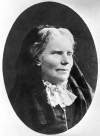
- Elizabeth Blackwell was a leading public health activist who supported education for women and she was the first woman in America to qualify as a doctor.
-
59.Elizabeth Garrett Anderson
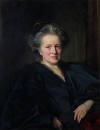
-
Elizabeth Garrett Anderson was the first woman to qualify as a surgeon and doctor in Britain, and she paved the way for women’s medical education. Among her many achievements, she co-founded the first hospital staffed by women and was the first female doctor of medicine in France. She was also a prominent suffragette and political campaigner.
-
60.Elsie Widdowson
-
Elsie Widdowson was a pioneer in the scientific study of nutrition and one of the creators of the state-recommended diet during World War Two.



